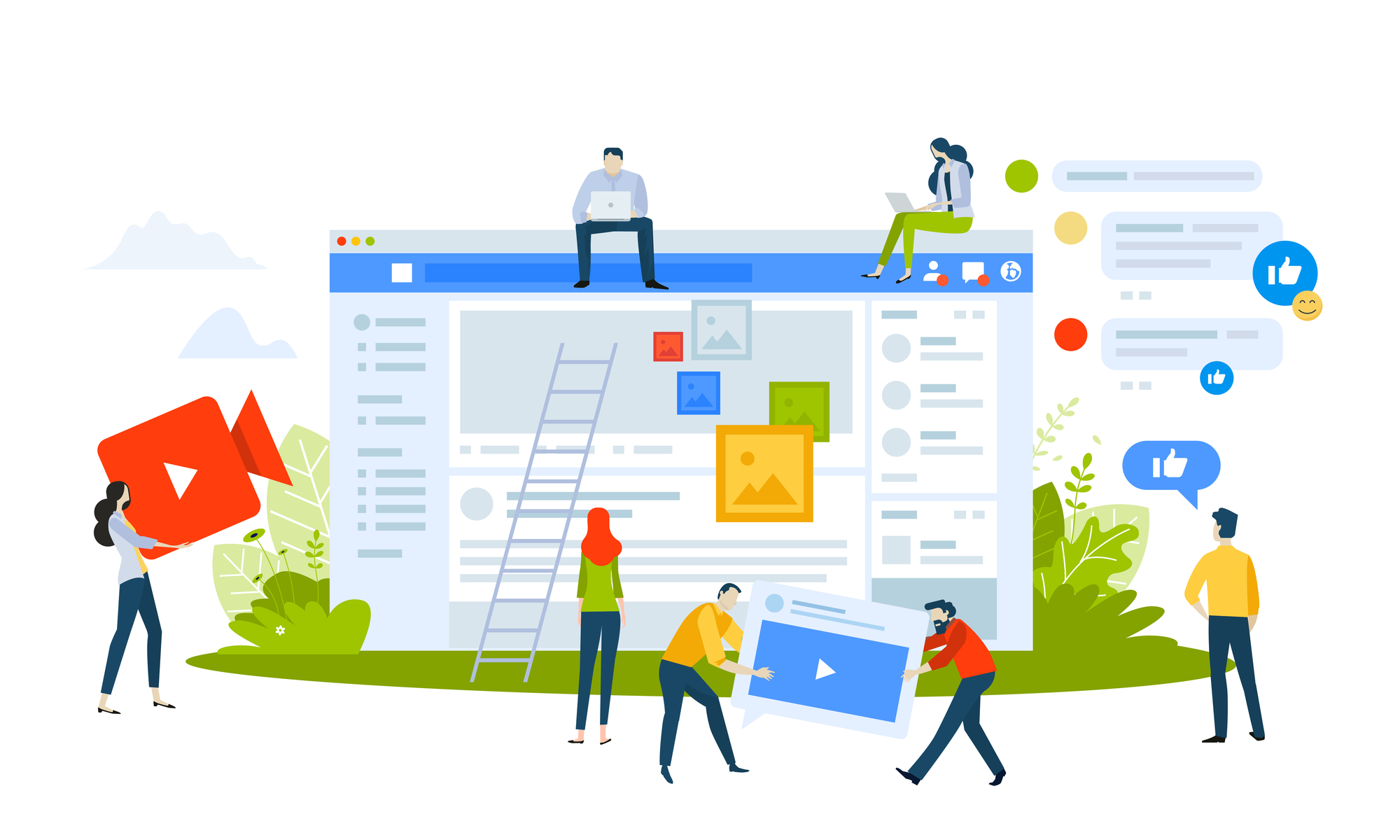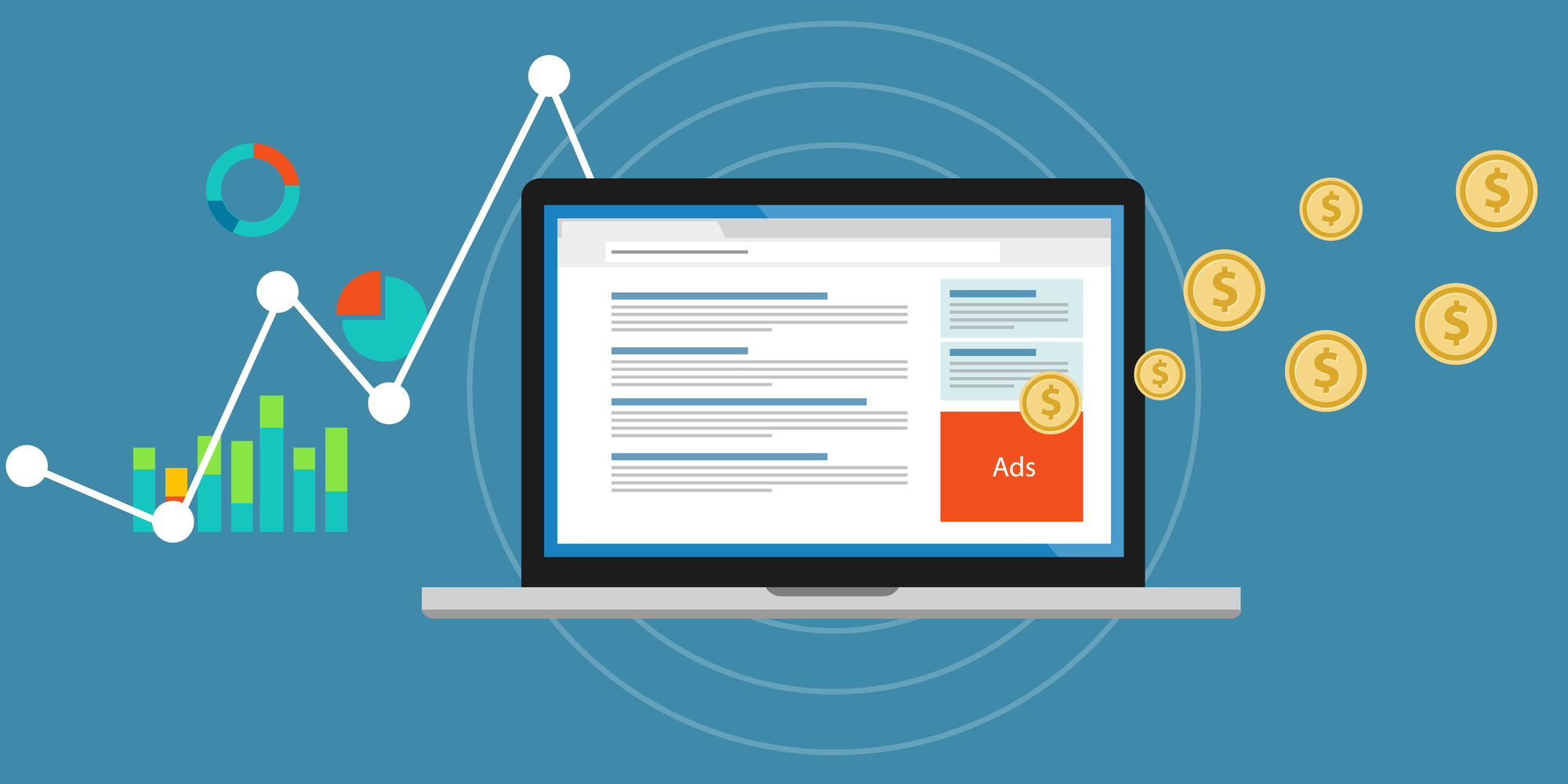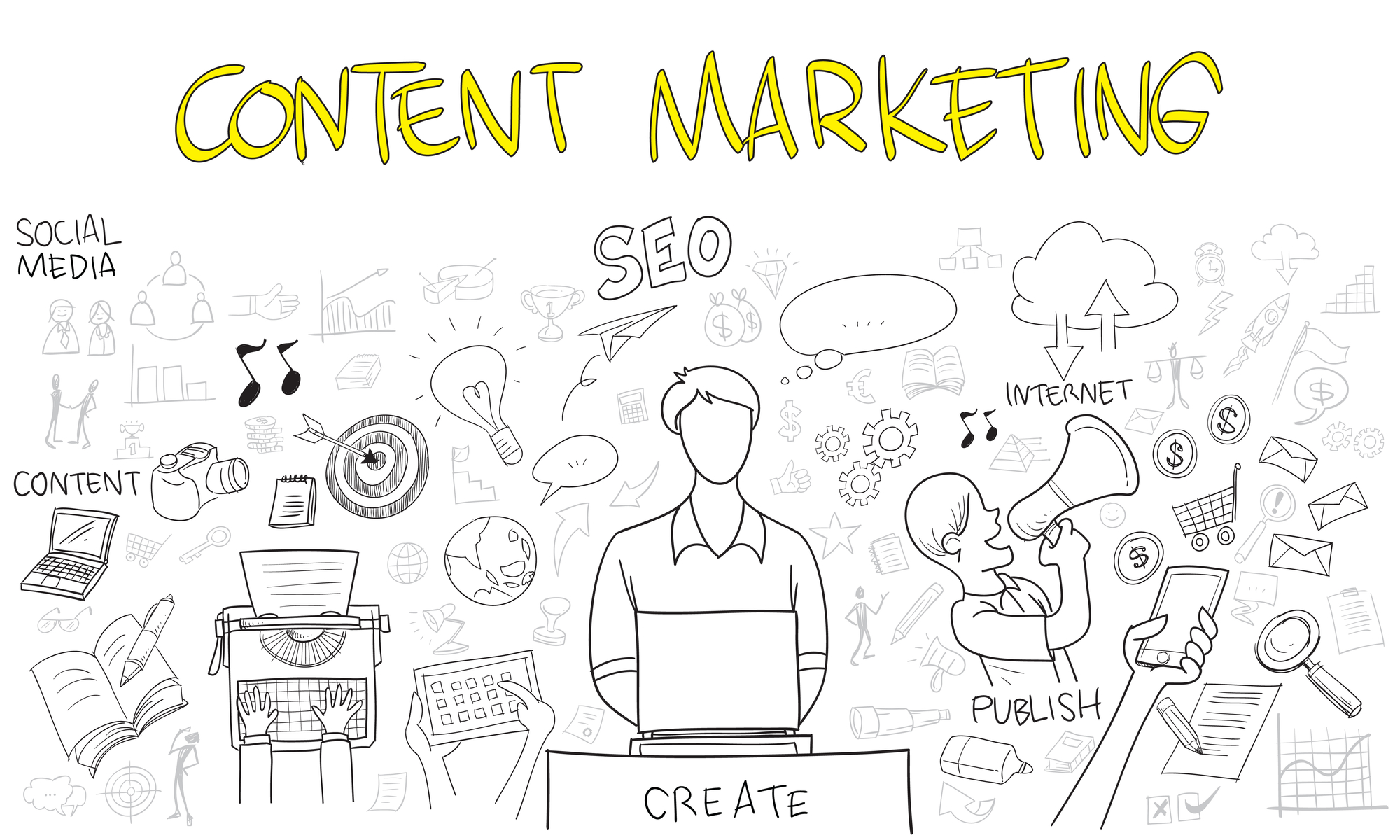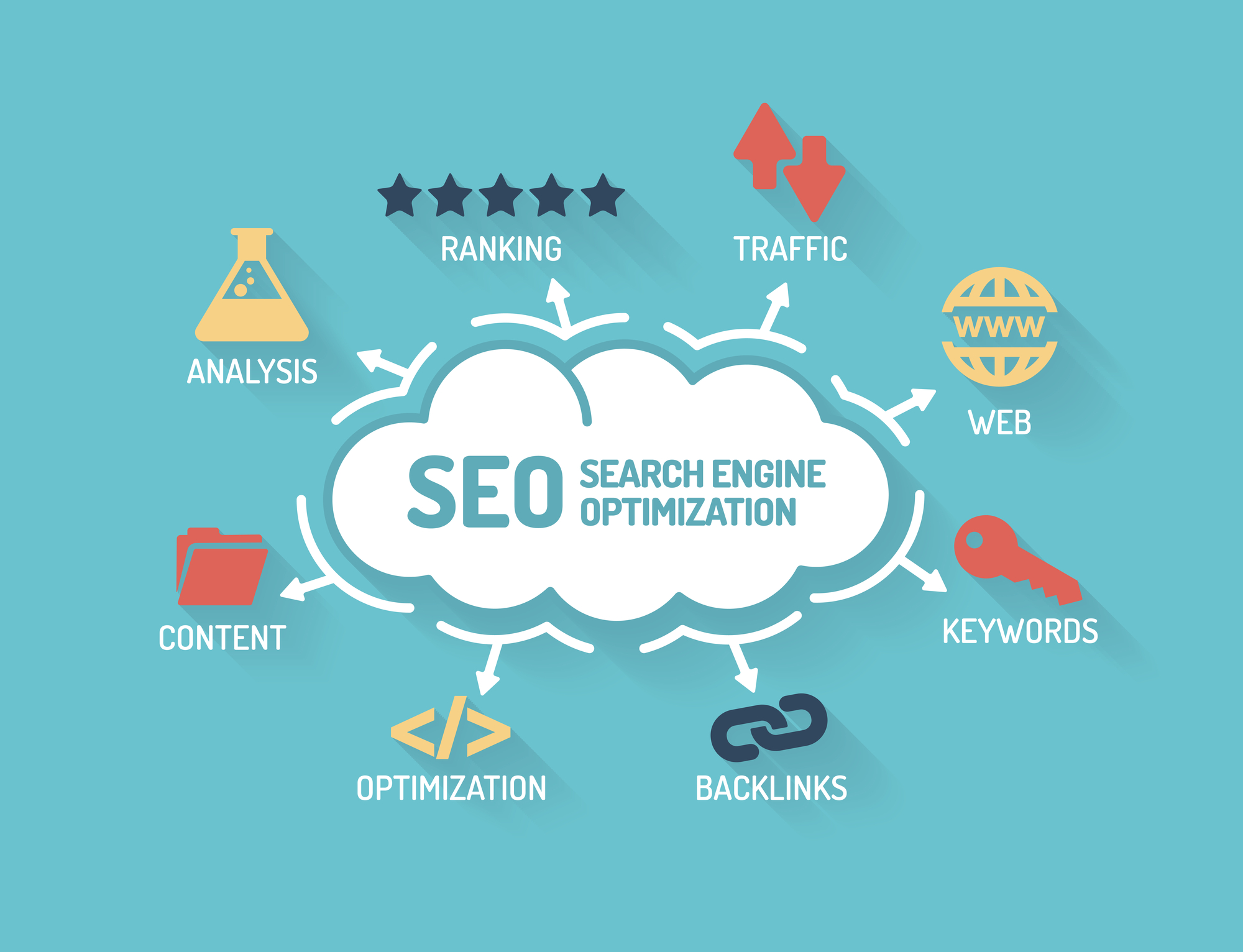
FREE Download For You
Get Top 20
Online Business Ideas
with High Revenue Potential
Ever feel like you’re shouting into the void, trying to get your small business noticed online? You’re not alone. Navigating small business online marketing can be a bit like crossing an ocean in a rowboat. Sure, it’s possible, but wouldn’t you rather have a motor and some navigation tools?
The vast digital sea is full of potential customers just waiting to discover your product or service. But how do they find you among the thousands of other businesses vying for their attention? The answer lies in understanding and implementing effective online marketing strategies.
In this guide, we’ll chart a course through the turbulent waters of social media engagement, SEO optimization and content creation; steering clear from rocky shoals with analytics tracking while harnessing the winds of email marketing and PPC advertising.
Hold tight! Let’s get ready to embark on your
Table Of Contents:
- Small Business Online Marketing Strategies
- Social Media Marketing for Small Businesses
- Content Marketing for Small Businesses
- Search Engine Optimization (SEO) for Small Businesses
- Email Marketing for Small Businesses
- Pay-Per-Click (PPC) Advertising for Small Businesses
- Influencer Marketing for Small Businesses
- Video Marketing for Small Businesses
- Analytics and Tracking for Small Business Online Marketing
- Automation Tools for Small Business Online Marketing
- FAQs in Relation to Small Business Online Marketing
- Conclusion
Small Business Online Marketing Strategies
Boost your startup with effective small business online marketing strategies. Learn how to increase visibility, engage audiences, and drive sales today.
Focusing on Niche Markets
Understand how targeting niche markets can help differentiate your brand from competitors and attract a loyal customer base.
Small business online marketing, online marketing strategies for small business, internet marketing strategies small business
Key Stats: Digital marketing for small businesses offers low-cost strategies with high returns. Acquiring a new customer costs five times more than closing an existing one.
Here are some crucial links you might find useful:
Digital marketing tools for small businesses
Social Media Marketing for Small Businesses
Small businesses can benefit greatly from social media marketing. With an effective strategy, social media can help to draw attention to your brand and services, enabling you to reach potential customers. But it’s not just about posting content; consistency and high-quality material are key.
A surprising stat is that 73% of marketers believe their efforts through social media marketing have been effective for their business. This demonstrates how potent a medium it is when utilized properly. Social channels offer a direct line to your customer base like no other platform does.
Planning is crucial in this strategy as random posts won’t get you far. Your aim should be engaging content that resonates with your audience while also representing what your brand stands for.

The Power of Consistency on Social Media Channels
To keep followers interested and engaged, regular posting on chosen social media channels is essential. You don’t want to disappear off their radar by going silent.
This doesn’t mean bombarding them daily but rather maintaining a steady presence they come to expect. A mix of promotional posts along with relevant industry news or tips related to your service or product keeps things fresh and varied.
Crafting High-Quality Content
In addition to being consistent, quality matters too. Poorly constructed posts will reflect negatively on the brand so take time crafting each piece before hitting ‘post’.
Your post must provide value – whether educational or entertaining – which makes people more likely share it around extending its reach beyond just those who follow you directly. Making use of multimedia such as videos or images can also help increase engagement rates.
Content Marketing for Small Businesses
Did you know that content marketing is an essential part of SEO? It’s true. In fact, a significant number of consumers learn about local businesses online more than anywhere else.
If your small business isn’t already using content marketing strategies, it’s time to start. But what exactly does this entail?
The Importance of Relevant Keywords and Valuable Content
Creating content that is pertinent and of worth is essential in the realm of digital advertising. This involves not just writing about topics that interest your audience but also incorporating relevant keywords into your material.
Why so? Because when people search for products or services similar to yours on search engines, these are the terms they use. So including them in your content increases its visibility.
Scheduling with a Content Calendar
Besides keyword usage, having a regular posting schedule can make sure there’s always fresh information available for potential customers who visit your site. For this reason, many businesses use a content calendar.
This tool helps plan out what kind of posts will go live on specific dates — everything from blog entries to social media updates and more.
Avoiding Common Pitfalls in Content Marketing
- Poorly researched content: If it doesn’t provide value or solve problems for readers, it’s unlikely to perform well.
- Lack of consistency: Posting sporadically makes it hard to build an engaged following.
Remember – The aim here isn’t merely promoting yourself but building brand identity and authority. That’s what keeps people coming back for more. Try content marketing – it could be the key to establishing a recognizable brand and gaining lasting authority.
Search Engine Optimization (SEO) for Small Businesses
SEO is a key player in the online marketing game. But, why exactly? Well, SEO can boost your brand’s visibility by getting it to appear at the top of search results. It’s like being featured prominently in a major publication.
For small business owners searching for approaches to advertise their brand, utilizing local SEO is a great idea. Why so? Here’s an interesting stat: Local search through Google My Business is a popular channel for small businesses.
Best Kodi Builds, explains how optimization helps businesses get noticed by those who matter most – their customers. You want potential clients to find you when they type related keywords into their preferred search engine.
The Power of Organic Traffic
You see, organic traffic from people who discover you via searches and click through is golden. And here comes another surprising stat: Organic traffic makes up 53% of all site visits.
A well-optimized website gets more clicks because users trust sites that rank highly in search engines. That means higher chances for conversions and sales—like hitting the jackpot without buying any lottery tickets.
Making Your Website Search Engine Friendly
To make sure this happens, ensure that every element—from URLs to meta descriptions—is optimized with relevant keywords while maintaining readability (remember we are not writing code but content.). Make use of tools like WriterAccess, which offer assistance in crafting compelling and SEO-friendly content.
So, there you have it. A basic understanding of why search engine optimization is crucial for small businesses like yours. The path to a successful online presence begins with mastering the art (and science.) of SEO.
Email Marketing for Small Businesses
Small businesses must seek out cost-effective methods to stay in touch with customers, and email marketing can be a great solution. This strategy allows you to communicate directly with your audience, providing personalized messages that nurture leads and promote loyalty.
HubSpot’s CMS, for instance, offers robust tools for capturing web prospects’ information through conversion forms or pop-ups on your site. It helps you grow a list of contacts who have shown interest in what you offer—people worth nurturing into loyal customers.
But why does this matter? Well, it’s all about the numbers. Email marketing is not only affordable but also returns an average of $42 for every dollar spent—a 4200% ROI. Now that’s a figure any business owner would love to see.
The Role of Services in Email Marketing
A great deal of work goes into creating successful email campaigns: writing engaging content, segmenting lists based on customer behavior or preferences (think different emails sent to new subscribers versus long-time customers), and tracking performance metrics are all part of the game.
To help manage these tasks effectively without consuming too much time or resources—an essential factor when running a small business—you may consider using marketing services. These platforms automate many aspects of email campaigns from design templates right down to scheduling delivery times ensuring consistency across all communications while giving more time back into growing other areas within your company.
Pay-Per-Click (PPC) Advertising for Small Businesses
Ever wondered how to get your small business in front of people who are actively searching for what you offer? PPC advertising might just be the ticket. It’s a powerful marketing tool that lets you target ads to potential customers when they’re ready and raring to buy.
So, what makes PPC advertising tick? It’s all about driving immediate traffic. Unlike SEO, which is a long-term strategy, PPC gives quick results. You could see an uptick in website visitors within hours of launching your campaign. Talk about speedy delivery.
The real kicker here is not just the speed but also the intent behind this traffic. The leads generated through PPC ad campaigns usually have high purchase intent – meaning they’re more likely than others to convert into paying customers.

Paid Advertisements: Short-Term Wins with Long-Term Gains?
You bet. While paid advertisements can provide short-term wins by generating instant traffic and leads, they can also lead to increased conversions over time as well.
If you’re thinking that setting up targeted ads sounds complex – don’t worry. There’s help available from online platforms where even those new to digital marketing can start their journey towards mastering PPC advertising strategies.
A Final Thought on Immediate Traffic
We know starting something new like a PPC campaign might seem daunting at first glance; especially if it feels like everyone else has been playing the game longer than you have.
No need for panic stations though because remember – every expert was once a beginner too.
Influencer Marketing for Small Businesses
Increasing your brand’s visibility and reach can be made easier through the use of influencer marketing – a popular trend in today’s digital landscape. But what is this exactly?
In simple terms, influencer marketing involves partnering with individuals who have a strong following in your industry. Though it may appear daunting, influencer marketing need not be an intimidating prospect – even for small businesses.
Think about influencers as ambassadors of your brand. They’ve already done the hard work of building an audience that trusts their recommendations. By working with them, you gain access to their followers who are likely part of your target market.
The Benefits of Influencer Marketing
The biggest benefit here is increased visibility without breaking the bank. You see, traditional advertising methods could eat up your budget quickly while giving minimal returns on investment (ROI). However, when implemented effectively, influencers can provide higher ROI compared to other forms of online advertising.
Beyond boosting sales numbers though, these partnerships also give small businesses more credibility because they allow brands to tap into existing trust between influencers and their audiences.
Finding The Right Influencers For Your Business
You don’t need high-profile celebrities or people with millions of followers on Instagram; often smaller-scale ‘micro-influencers’ will do just fine—and may even bring better results due to their highly engaged audiences.
Video Marketing for Small Businesses
Let’s talk about video marketing, a small business online marketing agency’s secret weapon. Why? Because video content is highly shareable and short-form videos can quickly get your product or service in front of the right audience.
This isn’t just our opinion – it’s backed by data. In fact, Forbes reports that viewers retain 95% of a message when they watch it in a video compared to 10% when reading text.
The Power of Video Content
A good story can captivate an audience and keep them engaged longer than any written piece ever could. This storytelling capability makes video one powerful tool. Creating a bond with viewers that can lead to increased faithfulness and confidence in your business is possible through the power of video.
You might be thinking that creating high-quality videos requires professional equipment or hiring an expensive production team but this simply isn’t true anymore. There are plenty of free resources available like mobile apps for editing, royalty-free music libraries, and even stock footage sites you can use.
Incorporating Video into Your Online Presence
If you’re ready to jump into the world of video marketing but aren’t sure where to start, we suggest beginning with social media platforms such as Facebook Live or Instagram Stories since they don’t require large budgets yet still have great potential reach within your target market.
To maximize engagement rates consider including call-to-actions (CTAs) throughout your videos asking viewers subscribe or visit your website for more information.
No matter what platform you choose, make sure to analyze performance metrics regularly so you can refine your strategy based on what’s working and what isn’t.
Remember: even small businesses have big stories to tell. Let video marketing be the voice of your brand.
Video marketing is like a secret superpower for small businesses aiming to boost their online presence. It’s all about sharing engaging content that really sticks with your audience, helping you forge an emotional connection and build up brand loyalty. And the best part? You don’t need any fancy equipment or a big team – there are plenty of free resources out there. Just kick off on social media channels such as Facebook Live or Instagram Stories to effectively reach your target market. Oh, and make sure not to forget those crucial call-to-actions.
Analytics and Tracking for Small Business Online Marketing
The heart of effective online marketing lies in understanding what works and why. This is where analytics and tracking come into play.
By leveraging digital tools like Google Analytics, small businesses can measure the success of their online marketing strategies. They allow you to see how your audience interacts with your content, providing insights that help refine future efforts.
You might be asking yourself, “Why should I care about metrics?” Here’s a key stat: proper use of these solutions helps manage successful campaigns – they’re not just nice-to-haves.
Understanding Your Metrics
Metric comprehension goes beyond mere numbers; it’s all about interpretation. Bounce rates, conversion rates or average session duration may seem daunting at first but they are essential pieces in the digital marketing puzzle.
A high bounce rate could indicate irrelevant content while low conversions may mean a misaligned buyer persona. So getting familiar with these terms isn’t optional—it’s necessary.
Leveraging Digital Tools
Digital tools aren’t limited to Google Analytics though. There are many others out there that offer specialized data sets tailored towards specific goals or industries.
HubSpot’s CMS, for instance, offers an integrated approach which allows seamless transition between different parts of your business operation from SEO optimization to social media engagement analysis.
Note:This link provides detailed information on some top-rated analytical platforms you can start using today.
Automation Tools for Small Business Online Marketing
Digital marketing can feel like a giant puzzle, especially for small businesses. But don’t fret – automation tools are here to help you put the pieces together.
The best digital marketing agency for small business will tell you that time is money. That’s where online marketing packages come into play. By automating repetitive tasks, these solutions free up your time so you can focus more on strategy and creativity.
HubSpot’s CMS, for example, lets you manage all your content in one place. It also offers built-in SEO recommendations to optimize each piece of content effectively.
SMB Online Marketing Made Easy with Automation
Email automation tools have become essential digital components in any SMB online marketing toolkit. Did you know 81% of SMBs rely on email as their primary customer acquisition channel?
- A tool like MailChimp helps streamline your email campaigns by sending targeted messages based on specific triggers or timelines.
- An integrated CRM system tracks customer interactions across different channels giving insights into buyer persona behaviour patterns and preferences.
- Then there’s social media scheduling apps such as Buffer which let you plan posts ahead of time reducing manual effort while ensuring consistency in posting schedules.
Picking The Right Tools For Your Small Business Internet Marketing Needs
Selecting the right automation tool depends largely on your unique needs as a small business owner actively searching for growth opportunities. While some may find an all-encompassing platform like HubSpot ideal, others might prefer specialized tools targeting specific areas such as PPC advertising or link building. Remember always opt for solutions that align with your business goals and budget constraints.
Here’s a handy guide to some of the best free website builders, many offering in-built marketing automation tools. Start exploring.
Automating your small business’s online marketing can be a game-changer. It saves time, boosts efficiency, and helps you focus on strategy. Tools like HubSpot for content management, MailChimp for email campaigns, and Buffer for social media scheduling are key players in this field. The right tool depends on your unique needs – so start exploring.
FAQs in Relation to Small Business Online Marketing
What is the best marketing for online business?
The top marketing strategies include SEO, content creation, email campaigns, PPC advertising, and social media engagement. It depends on your target audience.
How can a small business use digital marketing?
A small biz can use digital channels like websites, social platforms, and emails to connect with current customers and attract new ones.
How can I promote my business online for free?
You can do it by using SEO tactics on your website’s content or blog posts. Also, consider leveraging free features of social media platforms to engage audiences.
How to market a small business online?
Create engaging content relevant to your niche, leverage search engine optimization (SEO), build an active presence on multiple social media platforms, and track performance with analytics tools.
Conclusion
Embarking on the journey of small business online marketing can be daunting. But with targeted strategies, it becomes manageable.
You’ve learned to navigate niche markets and social media channels, key components for building a loyal customer base and promoting your brand.
You’ve discovered how relevant content creation paired with SEO optimization boosts visibility while email marketing nurtures leads effectively.
We’ve delved into PPC advertising for immediate traffic surge, influential partnerships for wider reach, engaging video content development, analytics tracking and automation tools – all essential cogs in your marketing machine!
This is just the start! With persistence and continuous learning in this ever-evolving digital landscape, you’re set to make waves online. Maintain a steady focus; don’t let go of your brand identity or the people you want to reach. Keep sailing!
Ready to start growing your own money tree? Building an online business from home offers incredible freedom and income potential. To get started on the path to passive earnings, download our free guide outlining 20 profitable online business models.

FREE Download For You
Get Top 20
Online Business Ideas
with High Revenue Potential







